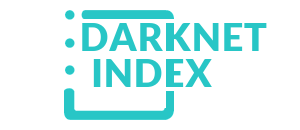The darknet, also known as the dark web, is a concealed section of the internet that's inaccessible via standard search engines. You can only access it using special software, settings, or authorization. This area comprises websites and content that are purposely kept hidden from public view.
Accessing darknet requires using Tor Browser, a special web browser that routes your internet traffic through a global network of relays managed by volunteers. This way, it becomes very difficult to trace which websites you're visiting, and these sites won't know where you are located.
When visiting the dark web, use a secure browser like Tor, do not reveal any of your personal information, and don't open suspicious files or links to stay safe.
The Darknet is often utilized for secure communication, discreet information or file sharing, anonymous research without identity exposure, and occasionally for engaging in illicit activities. It is also recognized for hosting underground black markets(darknet markets), whistleblowing platforms, and discussion boards that champion freedom of speech.
While accessing Darknet Markets themselves is typically not against the law in most places, engaging with illicit goods within them is generally considered a crime. On the other hand, some people might visit Darknet Markets for lawful purposes such as research, journalistic work, or simply to explore online communities. It's essential to know the local laws regarding online activities, and be cautious when using these platforms to avoid any potential issues.
Samourai Wallet Co-Founder Sentenced to Five Years In Prison
A U.S. federal judge has sentenced Keonne Rodriguez, co-founder of Samourai Wallet, to five years in prison for running an illegal crypto-mixing service that processed over 200 million dollars. Court records from the Southern District of New York also show that the 37-year-old must pay a $250,000 fine and turn himself in to federal custody.
Judge Denise Cote announced the sentence after Rodriguez admitted to helping operate an unlicensed money transfer business. She called it a serious crime and said the sentence was meant to discourage criminals from using cryptocurrency systems for illegal purposes.
During the hearing, Judge Cote said that Rodriguez’s letter to the court did not show that he truly understood the seriousness of his actions. In the letter, Rodriguez claimed his goal was to protect financial privacy. However, the judge said his service had become a tool for criminals to hide illegal earnings.
Cote said that Rodriguez’s actions were deliberate and harmful, and that his explanation did not match what Samourai Wallet was actually used for.
“Everyone values financial privacy,” she said, “but that is not what this was about.” She added that Rodriguez’s letter ignored the harm caused to victims of fraud, drug trafficking, and cybercrime linked to the platform.
Prosecutors said that Rodriguez acted with full knowledge of what he was doing. “He encouraged hackers, sanctions evaders, and other criminals to use his tool,” they told the court. They also said his letter showed no real remorse or understanding of the damage caused.
Court documents show that prosecutors traced funds handled by the wallet to illegal sources such as darknet markets, drug trafficking, cyberattacks, fraud, and even a child pornography website. They described the operations as planned and unlawful.
Rodriguez and his co-developer, William Lonergan Hill, were arrested in April. Both faced two charges: conspiracy to commit money laundering and conspiracy to run an unlicensed money transfer business. In July, they reached a plea deal with prosecutors. As part of the deal, both men pleaded guilty to the unlicensed transfer charge, while the money laundering charge which could have led to up to 20 years in prison was dropped.
